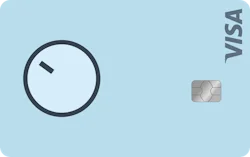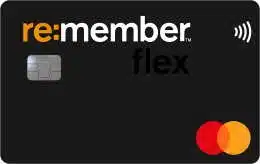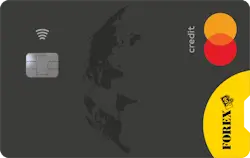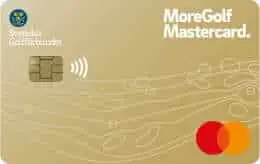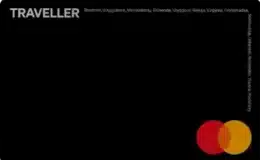Get a Credit Card today
Best Credit Cards Sweden
This content contain affiliate or advertising links. If you click and make a purchase, we may receive a commission. Your price is not affected.
Free, 100% digital credit card comparison
Find the credit card that fits you
Apply and get instant answer
Example: The credit interest rate is 22.00%. The annual fee is SEK 0. When using a credit of SEK 10,000 with repayment through 12 monthly payments of SEK 936, the effective interest rate is 24.36%. The total amount to be repaid is SEK 11,231. The example is calculated in January 2026 and the interest rate is variable.
Credit cards are a popular financial tool in Sweden, offering convenience and a range of benefits to users. They provide a secure way to make purchases, both online and in-store, and can help manage finances by tracking spending. Many credit cards in Sweden come with rewards programs, cashback options, and protection against fraud, making them an attractive choice for residents and newcomers alike.
Best Credit Cards for Expats
The best credit cards for expats often feature low fees, attractive exchange rates, and useful rewards that align with their new lifestyle. These cards are designed to meet the unique needs of individuals adjusting to life in Sweden, offering everything from travel insurance to bonus points on international spending. By choosing the right credit card, expats can streamline their financial transactions, enjoy valuable benefits, and seamlessly integrate into their new financial environment.
Requirements
| Requirements | Details |
|---|---|
| Minimum Age | 18 years |
| Employment Status | Must be employed |
| Payment Defaults Allowed | None (no payment remarks) |
Quick Facts
| Quick Facts | Details |
|---|---|
| Annual Fee | 0 SEK |
| Maximum Credit Limit | 150,000 SEK |
| Interest Rate | 22.00% |
| Effective Interest Rate | 24.36% |
| Interest-Free Period | 45 days |
| Card Type | Visa |
| Cash Withdrawal Fee | 0% |
| Foreign Currency Fee | 1.99% |
| Invoice Fee | 45 SEK (0 SEK with e-invoice) |
| Reminder Fee | 60 SEK |
| Late Payment Fee | 95 SEK |
| Overdraft Fee | 0 SEK |
| Google Pay | Yes |
| Apple Pay | Yes |
| Samsung Pay | Yes |
Example: The credit interest rate is 22.00%. The annual fee is SEK 0. When using a credit of SEK 10,000 with repayment through 12 monthly payments of SEK 936, the effective interest rate is 24.36%. The total amount to be repaid is SEK 11,231. The example is calculated in January 2026 and the interest rate is variable.
Borrowing costs money.
If you are unable to repay your debt on time, you risk getting a payment default. This can make it harder to rent a home, sign contracts, or obtain new loans. For support, contact the municipal budget and debt counselling service. You can find contact information at konsumentverket.se.
Requirements
| Requirements | Details |
|---|---|
| Minimum Age | 20 years |
| Minimum Annual Income | 150,000 SEK |
| Payment Defaults Allowed | None (no payment remarks) |
Quick Facts
| Quick Facts | Details |
|---|---|
| Annual Fee | 0 SEK |
| Maximum Credit Limit | 120,000 SEK |
| Interest Rate | 9.74% – 21.90% |
| Effective Interest Rate | 8.10% – 19.84% |
| Interest-Free Period | Up to 56 days |
| Card Type | Mastercard |
| Cash Withdrawal Fee | 3.00% (min. 35 SEK) |
| Foreign Currency Fee | 2.00% |
| Invoice Fee | 39 SEK (0 SEK with e-invoice) |
| Reminder Fee | 60 SEK |
| Late Payment Fee | 125 SEK |
| Overdraft Fee | 95 SEK |
| Free Additional Card | Yes |
| Google Pay | Yes |
| Apple Pay | Yes |
| Samsung Pay | Yes |
| Payment Holidays | Up to 2 payment-free months per year |
Example: Effective interest rate 18.91% for utilized credit of SEK 30,000 repaid over 1 year (2025-07-01)
Borrowing costs money.
If you are unable to repay your debt on time, you risk getting a payment default. This can make it harder to rent a home, sign contracts, or obtain new loans. For support, contact the municipal budget and debt counselling service. You can find contact information at konsumentverket.se.
Requirements
| Requirements | Details |
|---|---|
| Minimum Age | 18 years |
| Minimum Monthly Income | 1,042 SEK |
| Payment Defaults Allowed | None (no payment remarks) |
Quick Facts
| Quick Facts | Details |
|---|---|
| Annual Fee | 225 SEK |
| Maximum Credit Limit | 100,000 SEK |
| Interest Rate | 16.74% |
| Effective Interest Rate | 14.75% – 19.27% |
| Interest-Free Period | 55 days |
| Card Type | Mastercard |
| Cash Withdrawal Fee | 2.00% (min. 40 SEK) |
| Foreign Currency Fee | 0% |
| Invoice Fee | 29 SEK (0 SEK with e-invoice) |
| Reminder Fee | 60 SEK |
| Late Payment Fee | 100 SEK |
| Overdraft Fee | 125 SEK |
| Google Pay | Yes |
| Apple Pay | Yes |
Example: The effective interest rate is 16.73% when paying with e-invoice (20.37% with paper invoice) for a utilized credit of 20,000 SEK repaid over 1 year (2025-03-08)
Borrowing costs money.
If you are unable to repay your debt on time, you risk getting a payment default. This can make it harder to rent a home, sign contracts, or obtain new loans. For support, contact the municipal budget and debt counselling service. You can find contact information at konsumentverket.se.
Requirements
| Requirements | Details |
|---|---|
| Minimum Age | 20 years |
| Minimum Monthly Income | 10,417 SEK |
| Payment Defaults Allowed | None (no payment remarks) |
Quick Facts
| Quick Facts | Details |
|---|---|
| Annual Fee | 0 SEK first year, then 295 SEK annually |
| Maximum Credit Limit | 160,000 SEK |
| Interest Rate | 18.24% |
| Effective Interest Rate | 18.91% |
| Interest-Free Period | 55 days |
| Card Type | Mastercard |
| Cash Withdrawal Fee | 3.00% (min. 45 SEK) |
| Foreign Currency Fee | 1.65% |
| Invoice Fee | 35 SEK (0 SEK with e-invoice) |
| Reminder Fee | 60 SEK |
| Late Payment Fee | 115 SEK |
| Overdraft Fee | 105 SEK |
| Google Pay | Yes |
| Apple Pay | Yes |
| Samsung Pay | Yes |
The effective interest rate is 18.91% when paying by e-invoice for a used credit of SEK 20,000 repaid over 1 year (September 2025).
Borrowing costs money.
If you are unable to repay your debt on time, you risk getting a payment default. This can make it harder to rent a home, sign contracts, or obtain new loans. For support, contact the municipal budget and debt counselling service. You can find contact information at konsumentverket.se.
| Quick Facts | Details |
|---|---|
| Annual Fee | 0 SEK first year, then 395 SEK annually |
| Maximum Credit Limit | 150,000 SEK |
| Interest Rate | 16.90% |
| Effective Interest Rate | 18.99% |
| Interest-Free Period | 50 days |
| Card Type | Mastercard |
| Cash Withdrawal Fee | 3.00% (min. 35 SEK) |
| Foreign Currency Fee | 1.65% |
| Invoice Fee | 25 SEK (0 SEK with e-invoice) |
| Reminder Fee | 60 SEK |
| Late Payment Fee | 95 SEK |
| Overdraft Fee | 75 SEK |
| Google Pay | Yes |
| Apple Pay | Yes |
| Samsung Pay | Yes |
Example: For a credit amount of SEK 100,000 with a variable annual interest rate of 10.65%, an 8-year term (repayment period), 96 repayments, an arrangement fee of SEK 0 and a notice fee of SEK 10 (when paying by direct debit), the effective interest rate is 11.39%. The regular monthly amount to be paid is SEK 1,562 and the total amount to be paid is SEK 150,852. The example, which is calculated on 2025-05-23, assumes that interest and fees are unchanged throughout the credit period. Rounding is applied to the nearest higher krona. The interest rate is variable and can vary from 6.65% – 17.69%, which means that the effective interest rate can vary from 6.89% – 20.14%. The effective interest rate is calculated in accordance with the Swedish Consumer Agency’s guidelines.
Borrowing costs money.
If you are unable to repay your debt on time, you risk getting a payment default. This can make it harder to rent a home, sign contracts, or obtain new loans. For support, contact the municipal budget and debt counselling service. You can find contact information at konsumentverket.se.
Guide to credit cards

Credit cards offer a convenient way to pay for goods and services, allowing users to borrow funds up to an established limit for purchases, cash advances, and balance transfers.
How credit cards work
Credit cards are financial tools that allow you to borrow money up to a certain limit to make purchases, withdraw cash, or transfer balances. When you use a credit card, you’re essentially taking out a loan for the amount you spend.
Each month, the credit card company sends you a statement detailing your transactions, the total amount owed, and the minimum payment due. If you don’t pay the full balance by the due date, interest is charged on the remaining amount.
How credit card rewards work
Credit card rewards are incentives provided to users for making purchases with their cards. These rewards can come in various forms, such as cashback, points, or miles. Cashback rewards return a percentage of your spending back to you. Points and miles can be collected and redeemed for goods, services, travel, or other benefits. The key to maximizing credit card rewards is to understand the reward program’s structure and use the card strategically to earn and redeem rewards effectively.
Credit card interests
Credit card interest is the cost you pay for borrowing money from the credit card issuer. If you don’t pay off your full balance by the due date, the issuer will charge interest on the remaining amount. The interest rate, often referred to as the Annual Percentage Rate (APR), varies between cards and users based on creditworthiness and other factors.
Interest is calculated based on your card’s average daily balance and the APR. If you only make the minimum payment, the remaining balance carries over to the next billing cycle, accruing more interest. Understanding how interest accumulates can help you manage your credit card use more effectively and avoid unnecessary charges.
What you need to get a credit card in Sweden
Fast checklist
- Age: 18+
- Personnummer (Swedish personal identity number)
- Folkbokförd address (registered in Sweden)
- BankID (for signing applications)
- Swedish phone number
- Regular taxable income in Sweden
- No betalningsanmärkning (no payment defaults)
- Valid photo ID (passport or Swedish ID card)
- Personbevis (address confirmation from Skatteverket)
- Recent payslips / employment contract
- Residence permit card (if non-EU)
- Swedish bank account (clearing + account)
- E-faktura or autogiro (for invoices and repayments)
Eligibility basics
To apply, you must be at least 18 years old, have a personnummer, be registered with a folkbokförd address, and usually have access to BankID for e-signing. A Swedish phone number is also required, since most issuers verify applications via SMS or BankID.
Income requirements
Credit card issuers expect regular, documented income such as salary, pension, or business income. New employees on probation may still be approved but often with lower credit limits. If you are self-employed, prepare to show your F-skattsedel, tax returns, and bank statements.
Documents needed
You will typically need a valid ID (passport or Swedish ID card), a personbevis from Skatteverket, employment contract plus 3 recent payslips, and residence permit card if you are non-EU. Proof of address such as a rental contract can also be requested.
Bank and billing setup
A Swedish bank account is required for billing. Most issuers strongly recommend using e-faktura or autogiro to avoid paper invoice fees and reduce the risk of missed payments.
Credit check
Applications trigger a check with UC, Bisnode or Creditsafe. Too many applications in a short time lower approval chances. Any betalningsanmärkning (payment default) is a serious obstacle and remains on record for 3 years.
For newcomers without personnummer
Without a personnummer, approval is very rare. The usual route is to first open a bank account, get BankID, and build history. Later you can apply for a low-limit starter card. International providers may be an option in the meantime, but Swedish banks generally require full local KYC.
How to apply for a credit card
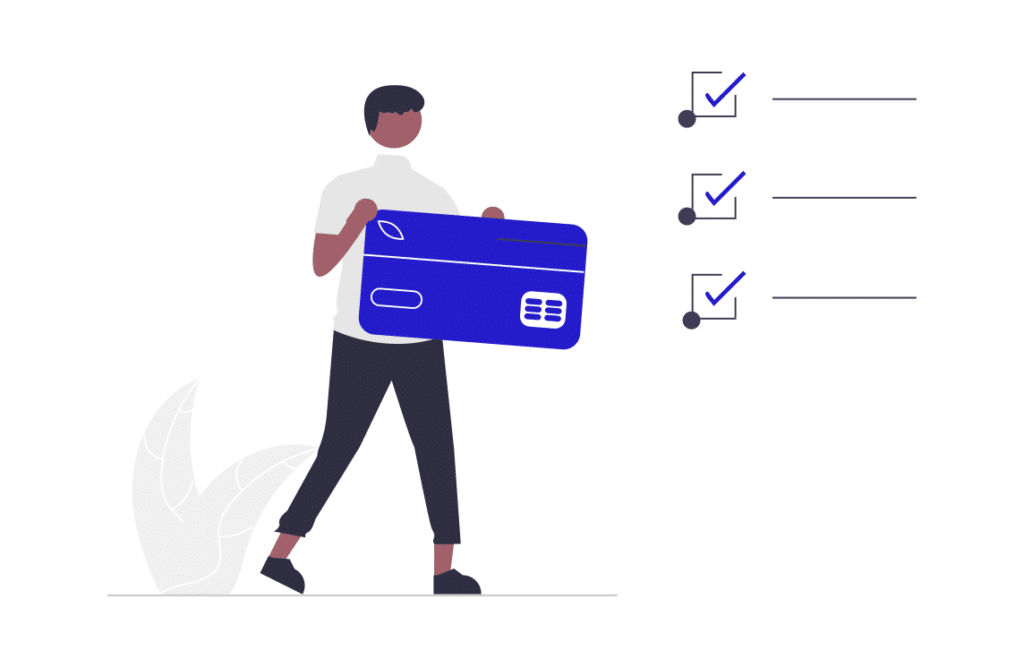
Applying for a credit card is a straightforward process that often is completed online. Whether you’re looking for your first card or adding another to your wallet, understanding the application steps can help you navigate the process smoothly.
Step-by-Step Guide to Applying for a Credit Card Online:
- Research and Compare: Start by researching different credit cards to find the one that best suits your needs. Consider factors like interest rates, rewards, fees, and eligibility requirements.
- Check Your Credit Score: Your credit score is a key factor in determining your eligibility for a credit card. Check your score beforehand to gauge your chances of approval.
- Fill Out the Application: Go to the credit card issuer’s website and complete the application form. You’ll need to provide personal information, including your name, address, income, and employment details.
- Review and Submit: Double-check your application for accuracy before submitting it. Errors can delay processing or impact your approval chances.
- Wait for Approval: After submission, you’ll typically receive a response within a few minutes to a few days, depending on the issuer. Some applications might require additional review or documentation.
- Receive Your Card: Once approved, you’ll receive your credit card by mail. Activate it according to the issuer’s instructions, and you’re ready to start using it.
How Swedish credit checks work (UC, Bisnode, Creditsafe)
Credit bureaus in Sweden
When you apply for a credit card, the issuer checks your financial background with one of Sweden’s main bureaus: UC, Bisnode, or Creditsafe. UC is the most widely used and is owned by the country’s largest banks. The report shows your income, existing loans, payment history, and debts. Each application leaves a trace (kreditförfrågan) that other lenders can see.
Impact of multiple applications
Too many applications in a short time can reduce your chances of approval. Lenders may interpret repeated checks as a sign of financial stress or overborrowing, even if you have not taken on new debt. It is often better to compare cards first and then apply for only one or two.
Betalningsanmärkning explained
A betalningsanmärkning is a registered payment default. It appears if you fail to pay a debt after collection and enforcement. Even small unpaid bills (like mobile subscriptions) can trigger one. A payment remark remains on your record for three years and can make it harder to:
- Rent housing (landlords often check UC)
- Sign contracts for phone, internet, or electricity
- Get new loans or credit cards
Practical tip
If you fear rejection, you can request your own UC report before applying. This lets you check your score, see existing loans, and verify if any remarks are registered.
Applying without a long Swedish history
Expats and newcomers often face stricter checks because they lack a long Swedish credit history. Without many years in the system, banks rely more heavily on your income, employment stability, and housing situation to decide whether to approve you.
Documents that help
To improve your chances, prepare:
- Employment contract (preferably permanent, but even probation contracts show stability).
- Salary slips from the last 3 months.
- Tenancy contract or proof of stable housing.
- Personbevis from Skatteverket confirming your address.
- Residence permit card (if non-EU).
Practical expectations
Even with solid paperwork, issuers may only grant low initial credit limits. This is normal for new residents and can be improved over time with responsible usage. Paying on time, using autogiro or e-faktura, and avoiding missed payments builds a positive record with UC and other bureaus.
Tips for newcomers
Start with one basic credit card rather than applying for several. Use it regularly, pay in full each month, and after 6–12 months request a limit increase. This demonstrates both reliability and ability to handle credit, gradually aligning you with long-term Swedish residents in the eyes of lenders.
Glossary: Swedish Credit-Card Terms
The table below explains common Swedish terms you will encounter when applying for or using credit cards in Sweden.
| Term | Meaning | Explanation |
|---|---|---|
| Effektiv ränta | Effective interest rate | Shows the true yearly borrowing cost, including nominal interest, fees, and compounding. Used for comparing credit offers under Swedish law. |
| Nominell ränta | Nominal interest rate | The base annual interest rate excluding fees. Always lower than the effektiv ränta, but less useful for real comparisons. |
| Betalningsanmärkning | Payment default record | Registered if you fail to pay debts after collection. Stays on your credit file for 3 years and blocks loans, contracts, and rentals. |
| Delbetalning | Instalment plan | Option to split purchases into monthly payments. Usually comes with extra fees and higher effective interest costs. |
| E-faktura | Electronic invoice | Digital invoice linked to your internet bank. Cheaper (often free) compared to paper invoices and helps avoid late payments. |
| Autogiro | Direct debit | Automatic withdrawal from your bank account on due dates. Prevents missed payments and late fees. |
| Valutapåslag | Foreign transaction fee | Extra fee (commonly 1.5–2%) added on purchases in non-SEK currencies. Some cards offer 0% valutapåslag for travelers. |
| Kontantuttag | Cash withdrawal | Withdrawing cash using your credit card. Interest applies immediately, plus fixed fees per withdrawal. |
| Köpskydd | Purchase protection | Insurance covering stolen, damaged, or undelivered goods bought with the card. Conditions vary by issuer. |
| Reklamation | Claim / dispute | The process to contest a faulty or non-delivered purchase. Can escalate to chargeback or to ARN (consumer complaints board). |
| Spärrservice | Card blocking service | 24/7 service to block your card if it’s lost or stolen. Often a single phone number for multiple banks in Sweden. |
FAQ
Frequently Asked Questions
Yes, you can have multiple credit cards. Having more than one can be beneficial for managing finances, maximizing rewards, and building credit. However, it’s important to manage them responsibly to avoid debt and negative impacts on your credit score.
The easiest credit card to get often depends on your credit history. For those with limited or no credit history, Bank Norwegian offers a credit card that is relatively easy to obtain compared to others. Always review the terms and eligibility criteria before applying.
MasterCard and Visa are two major payment networks that process credit card transactions. Both are widely accepted globally, but they differ slightly in their specific benefits, offers, and merchant acceptance. The choice between MasterCard and Visa often depends on the specific card issuer and the benefits they provide rather than the network itself.

